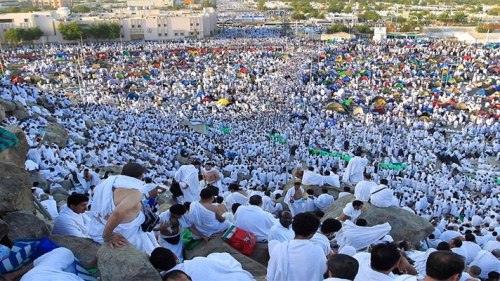The Purpose of Fasting in Islam

In the name of Allah, the Gracious, the Merciful
The purpose of fasting is to develop the quality of righteousness (taqwa), inwardly and outwardly, by abstaining from sinful deeds and training ourselves to control our thoughts and desires. Fasting is a deeply spiritual practice that is meant to benefit us in body, mind, and heart.
Allah said:
يَا أَيُّهَا الَّذِينَ آمَنُوا كُتِبَ عَلَيْكُمُ الصِّيَامُ كَمَا كُتِبَ عَلَى الَّذِينَ مِن قَبْلِكُمْ لَعَلَّكُمْ تَتَّقُونَ
O you who believe, fasting is prescribed for you as it was prescribed for those before you that you may become righteous.
Surat al-Baqarah 2:183
The word taqwa comes from the root meaning “to guard” and it is variously translated as mindfulness, righteousness, and Godfearing piety. Fasting is meant to instill this virtuous quality within us and its associated virtues of good character, generosity, patience, purity of heart, and so on. In this way, fasting acts as a shield which protects us from sin and ultimately from the punishment of Allah in the Hereafter.
Uthman ibn Abi Al-‘As reported: The Messenger of Allah, peace and blessings be upon him, said:
الصِّيَامُ جُنَّةٌ مِنْ النَّارِ كَجُنَّةِ أَحَدِكُمْ مِنْ الْقِتَالِ
Fasting is a shield from the Hellfire just like the shield of any of you in battle.
Source: Sunan Ibn Mājah 1639, Grade: Sahih
There are three levels of fasting that correspond to its outward and inward components: abstaining from food and drink, abstaining from sins, and abstaining from bad thoughts.
Al-Ghazali writes:
اعْلَمْ أَنَّ الصَّوْمَ ثَلَاثُ دَرَجَاتٍ صَوْمُ الْعُمُومِ وصوم الخصوص وصوم خصوص الخصوص وَأَمَّا صَوْمُ الْعُمُومِ فَهُوَ كَفُّ الْبَطْنِ وَالْفَرْجِ عَنْ قضاء الشهوة كما سبق تفصيله وَأَمَّا صَوْمُ الْخُصُوصِ فَهُوَ كَفُّ السَّمْعِ وَالْبَصَرِ وَاللِّسَانِ وَالْيَدِ وَالرِّجْلِ وَسَائِرِ الْجَوَارِحِ عَنِ الْآثَامِ وَأَمَّا صوم خصوص الخصوص فصوم القلب عن الهضم الدَّنِيَّةِ وَالْأَفْكَارِ الدُّنْيَوِيَّةِ وَكَفُّهُ عَمَّا سِوَى اللَّهِ عز وجل بالكلية
Know that there are three degrees of fasting: the fasting of common people, the fasting of the elite, and the fasting of the elite of the elite. As for the fasting of the common people, it is retraining the stomach from fulfilling its desires as has been mentioned. As for the fasting of the elite, it is restraining one’s hearing, sight, tongue, hands, feet, and all limbs from sin. As for the fasting of the elite of the elite, it is the fasting of the heart from unworthy concerns and worldly thoughts and to restrain it entirely from everything besides Allah the Exalted.
Source: Iḥyāʼ Ulūm al-Dīn 1/234
Hence, we must be especially careful to guard ourselves from all kinds of sin while we are fasting. We should abandon unbeneficial speech and specifically arguing with others. If anyone tries to argue with us while we are fasting, we should simply respond by saying we are fasting.
Abu Huraira reported: The Messenger of Allah, peace and blessings be upon him, said:
إِذَا أَصْبَحَ أَحَدُكُمْ يَوْمًا صَائِمًا فَلَا يَرْفُثْ وَلَا يَجْهَلْ فَإِنْ امْرُؤٌ شَاتَمَهُ أَوْ قَاتَلَهُ فَلْيَقُلْ إِنِّي صَائِمٌ إِنِّي صَائِمٌ
When one of you awakes in the morning for fasting, then he should not use obscene language or behave ignorantly. If anyone slanders him or tries to argue with him, he should say: Indeed, I am fasting. Indeed, I am fasting.
Source: Ṣaḥīḥ Muslim 1151, Grade: Sahih
In another narration, the Prophet said:
إِنَّ الصِّيَامَ لَيْسَ مِنَ الأَكْلِ وَالشُّرْبِ فَقَطْ إِنَّمَا الصِّيَامُ مِنَ اللَّغُوِ وَالرَّفَثِ فَإِنْ سَابَّكَ أَحَدٌ أَوْ جَهِلَ عَلَيْكَ فَقُلْ إِنِّي صَائِمٌ
Verily, fasting is not only from eating and drinking. Rather, fasting is from vanity and obscenity. If someone abuses you or acts foolish against you, then say: Indeed, I am fasting.
Source: Ṣaḥīḥ Ibn Ḥibbān 3561, Grade: Sahih
Saying this is as much a reminder to ourselves as it is to others. When we are tempted to commit sins or engage in bad thoughts while fasting, we should remind ourselves that we are fasting and change our thinking towards something good and beneficial.
If we do not abstain from bad words while fasting as well as sins and bad inward statements, then our fasting has not achieved one of its most important purposes. Allah certainly does not need any of us to fast, so we must remember that the benefits our fasting might be nullified by these sins.
Abu Huraira reported: The Messenger of Allah, peace and blessings be upon him, said:
مَنْ لَمْ يَدَعْ قَوْلَ الزُّورِ وَالْعَمَلَ بِهِ فَلَيْسَ لِلَّهِ حَاجَةٌ فِي أَنْ يَدَعَ طَعَامَهُ وَشَرَابَهُ
Whoever does not give up false speech and evil deeds while fasting, then Allah is not in need of his leaving food and drink.
Source: Ṣaḥīḥ al-Bukhārī 1804, Grade: Sahih
In another narration, the Prophet said:
رُبَّ صَائِمٍ لَيْسَ لَهُ مِنْ صِيَامِهِ إِلَّا الْجُوعُ
A person might fast and he gets nothing from his fast but hunger.
Source: Sunan Ibn Mājah 1690, Grade: Sahih
Umar ibn Al-Khattab, may Allah be pleased with him, said:
لَيْسَ الصِّيَامُ مِنَ الطَّعَامِ وَالشَّرَابِ وَحْدَهُ وَلَكِنَّهُ مِنَ الْكَذِبِ وَالْبَاطِلِ وَاللَّغْوِ وَالْحَلِفِ
Fasting is not merely from food and drink. Rather, it is from lies, falsehood, vain talk, and swearing.
Source: Muṣannaf Ibn Abī Shaybah 8683
In addition to keeping away from sins, we can use the exercise of fasting as a means to develop self-control over our low desires. Fasting generates will power within the heart that can be transferred to other situations in which we need to overcome temptation.
Zuhair reported: The Prophet, peace and blessings be upon him, said:
إِذَا دُعِيَ أَحَدُكُمْ إِلَى طَعَامٍ وَهُوَ صَائِمٌ فَلْيَقُلْ إِنِّي صَائِمٌ
If one of you is invited to a meal while he is fasting, then let him say: Indeed, I am fasting.
Source: Ṣaḥīḥ Muslim 1150, Grade: Sahih
If we can turn down a delicious meal and refreshing drink when we are hungry and thirsty, then we can strengthen our will power to overcome other desires as well. For this reason, the Prophet told young men who could not get married to fast in order to control their natural urges.
Ibn Mas’ud reported: The Messenger of Allah, peace and blessings be upon him, said:
يَا مَعْشَرَ الشَّبَابِ مَنْ اسْتَطَاعَ مِنْكُمْ الْبَاءَةَ فَلْيَتَزَوَّجْ فَإِنَّهُ أَغَضُّ لِلْبَصَرِ وَأَحْصَنُ لِلْفَرْجِ وَمَنْ لَمْ يَسْتَطِعْ فَعَلَيْهِ بِالصَّوْمِ فَإِنَّهُ لَهُ وِجَاءٌ
O young men, if you are able to support a wife, then get married. Verily, it restrains the eyes and protects the private parts. Whoever is not able to do so, then must fast as it is a means of control.
Source: Ṣaḥīḥ al-Bukhārī 1806, Grade: Muttafaqun Alayhi
Fasting should also be a means of developing control over our anger. True strength is in the ability of a person to control his or her mind and behavior while they are being provoked to anger. For this reason, we should not argue or respond to the bad words of others while fasting.
Abu Huraira reported: The Messenger of Allah, peace and blessings be upon him, said:
لَيْسَ الشَّدِيدُ بِالصُّرَعَةِ إِنَّمَا الشَّدِيدُ الَّذِي يَمْلِكُ نَفْسَهُ عِنْدَ الْغَضَبِ
The strong are not the best wrestlers. Verily, the strong are only those who control themselves when they are angry.
Source: Ṣaḥīḥ al-Bukhārī 5763, Grade: Muttafaqun Alayhi
Moreover, fasting is a means for compassion for the poor and gratitude for the favors of Allah. When we feel the the pain of hunger, we have to remember that many people in the world go hungry without choosing to do so. We should empathize with their pain and act within our capabilities to help them. Reflecting on the situation of those in need will also generate gratitude and contentment for the blessings in our lives.
Abu Huraira reported: The Messenger of Allah, peace and blessings be upon him, said:
انْظُرُوا إِلَى مَنْ أَسْفَلَ مِنْكُمْ وَلَا تَنْظُرُوا إِلَى مَنْ هُوَ فَوْقَكُمْ فَهُوَ أَجْدَرُ أَنْ لَا تَزْدَرُوا نِعْمَةَ اللَّهِ
Look to those lower than you and do not look to those above you, lest you view the favors of Allah as trivial.
Source: Ṣaḥīḥ Muslim 2963, Grade: Sahih
Finally, the ultimate end goal of developing virtues, performing good deeds, and controlling our sinful passions is to be forgiven for our sins and to gain entrance into Paradise.
Abu Umamah reported: I said, “O Messenger of Allah, tell me a deed to do.” The Messenger of Allah, peace and blessings be upon him, said:
عَلَيْكَ بِالصَّوْمِ فَإِنَّهُ لَا عَدْلَ لَهُ
You must fast, for there is nothing equal to it.
Source: Sunan al-Nasā’ī 2223, Grade: Sahih
Jabir reported: The Messenger of Allah, peace and blessings be upon him, said:
إِنَّ لِلَّهِ عِنْدَ كُلِّ فِطْرٍ عُتَقَاءَ وَذَلِكَ فِي كُلِّ لَيْلَةٍ
Verily, Allah has people he redeems at the time of breaking fast, and that is during every night.
Source: Sunan Ibn Mājah 1643, Grade: Sahih
We ask Allah Almighty to accept our fasting and instill within us all of its virtues.
Success comes from Allah, and Allah knows best.
( Reprinted from Faith in Allah )
Topics: Fasting (Sawm), Ramadan Channel: Ramadan - Day 3
Views: 91777
Related Suggestions





























